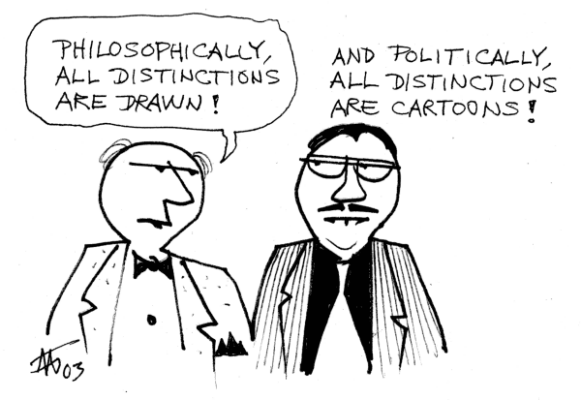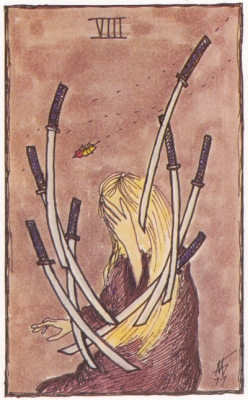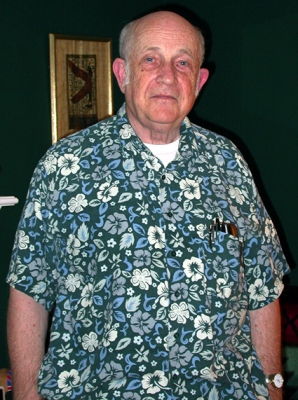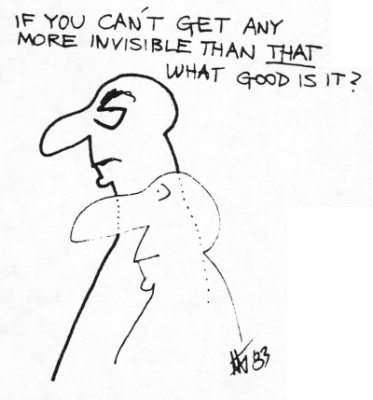The Golden Age of Science Fiction: Alexis Gilliland
The Best Fan Artist category was not one of the original Hugo categories in 1953, not introduced until 1967, when it was won by Jack Gaughan. The award has been presented every year since then. Gilliland was nominated for the Hugo every year between 1978 and 1985, winning that award in 1980 and for three years running from 1983 to 1985. While several fan artists have won the award more times than Gilliland, his three year streak ties those of Tim Kirk and Brad W. Foster for consecutive wins.
The Fan Activity Achievement Awards, or FAAN Awards were founded in 1976 by Moshe Feder and Arnie Katz. Created to highlight writing in fandom, they differed from the Fan Hugos in that they were voted on specifically by fanzine fans. The original awards were presented at various convention. Following the 1980 awards, the awards were on hiatus until 1994 and have been presented each year since, with the exception of 1996. Alexis Gilliland won the last of the original run of FAAN Awards for Best Fan Artist—Humorous, his third sequential win. The first winner was Bill Rotsler. The category was not revived after the hiatus, being combined with the Best Fan Artist—Serious category and replaced by the Best Fan Artist category. Gilliland was nominated for The FAAN Award for Best Humorous Art in three consecutive years from 1978 through 1980.
Gilliland’s cartoons published in 1979 included work that appeared in the first issue of David Langford’s Ansible as well as the programme book for Seacon ’79, the 1979 Worldcon, held in Brighton.

Gilliland published the fanzine Das Fangold as well as serving a stint as the editor of the WSFA Journal, WSFA’s club zine.
In 1981, he published his first novel, The Revolution from Rosinante, which earned him a Campbell Award and was the first of a trilogy. He went on to publish the stand alone novel The End of the Empire and a second trilogy beginning with Wizenbeak as well as a half-dozen short stories, which appeared in a variety of magazines and anthologies.
Gilliland had to overcome a large field to win his first Hugo, beating Jeanne Gomoll, Joan Hanke-Woods, Victoria Poyser, Bill Rotsler, and Stu Shiffman for the award. Gomoll would win the FAAN Award for Best Editor that same year and Hanke-Woods won the FAAN Award for Best Artist—Humorous. Poyser would win the Best Fan Artist Hugo the following two years and Hanke-Woods would win it in 1986, following Gilliland’s three year streak. Rotsler had won the Hugo the previous year and Shiffman would win the award in 1990.
Thanks to Jo Van Ekeren, we know that the other nominees in this category include Jim Barker, Ken Fletcher, Marc Schirmeister, and Stu Shiffman.
 Steven H Silver is a sixteen-time Hugo Award nominee and was the publisher of the Hugo-nominated fanzine Argentus as well as the editor and publisher of ISFiC Press for 8 years. He has also edited books for DAW, NESFA Press, and ZNB. He began publishing short fiction in 2008 and his most recently published story is “Webinar: Web Sites” in The Tangled Web. His most recent anthology, Alternate Peace was published in June. Steven has chaired the first Midwest Construction, Windycon three times, and the SFWA Nebula Conference 6 times, as well as serving as the Event Coordinator for SFWA. He was programming chair for Chicon 2000 and Vice Chair of Chicon 7.
Steven H Silver is a sixteen-time Hugo Award nominee and was the publisher of the Hugo-nominated fanzine Argentus as well as the editor and publisher of ISFiC Press for 8 years. He has also edited books for DAW, NESFA Press, and ZNB. He began publishing short fiction in 2008 and his most recently published story is “Webinar: Web Sites” in The Tangled Web. His most recent anthology, Alternate Peace was published in June. Steven has chaired the first Midwest Construction, Windycon three times, and the SFWA Nebula Conference 6 times, as well as serving as the Event Coordinator for SFWA. He was programming chair for Chicon 2000 and Vice Chair of Chicon 7.



I loved Gilliland’s Rosinante books and in my opinion George Lucas should have used End of the Empire as the basis of the fourth Star Wars movie.